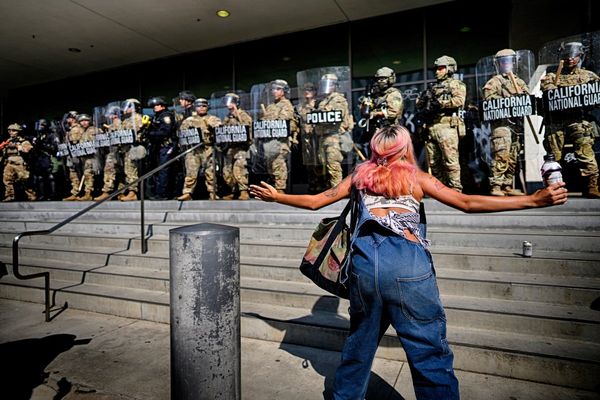
The first fallacy of Brexit was that leaving the European Union would be a one-off event. It was bound to be an open-ended process. This week’s anniversary of the day of separation coincides with two developments illustrating the perpetual nature of a project that was, in the promise of Boris Johnson’s 2019 election campaign, meant to be “done” four years ago.
On Wednesday the government published proposed changes to Northern Ireland’s trading arrangements. This is the deal that has persuaded the Democratic Unionist party (DUP) to resume power-sharing at Stormont. The core DUP objection to the Brexit settlement has been exceptional customs arrangements for Northern Ireland. These imply a degree of constitutional detachment from the UK that is unacceptable to unionists.
The solution doesn’t dissolve the customs border in the Irish Sea, since that would breach the UK’s Brexit treaties with the EU. Instead, the plan is to make the boundary practically invisible, while making Northern Ireland’s status as an integral part of the UK more explicit in law. These measures do not radically change Britain’s trading arrangements, but they are more than symbolic. As the UK and EU regulatory regimes diverge over time, tension could arise between what Brussels expects in terms of enforcement of customs rules for Northern Ireland and promises made to unionists this week.
Meanwhile, a range of foodstuffs coming into Britain from the EU became subject to health certification on Wednesday. The equivalent paperwork, imposed by the EU as a condition of shipping into the single market, has applied to exports since December 2020. The UK government chose not to be so rigorous in “taking back control” of imports. Fear of disrupting supplies means that checks at the border are due to be phased in only gradually.
These import controls have already been postponed five times. The vaunted Brexit trade sovereignty has amounted to an asymmetry: EU firms have had frictionless access to British consumers, while British businesses were denied the reciprocal privilege. Export bureaucracy has already cost UK businesses tens of billions of pounds. Large companies find it easier to absorb that burden than smaller enterprises. Some have preferred relocation to the EU. Others have given up trying to expand into the single market. Neither response is good for the British economy. Now the long-delayed import barriers will add another layer of cost, another pointless knot in supply chains.
Of this week’s twin Brexit-related developments, proposals that could restore the Northern Ireland assembly are much more politically salient than paperwork that might raise the price of French cheese. But both developments describe the same underlying problem, which is that separation from the single market and customs union has severe and ongoing costs that Brexit’s cheerleaders flatly denied.
A customs border in the Irish Sea sows constitutional discord, while one down the Channel is a drag on the economy. The remedy in both cases is a trajectory of realignment and reconciliation with the EU that is taboo in government and acknowledged only furtively by the opposition. The political squeamishness around this issue is no more sustainable than the botched deal that has required so much subsequent revision and renegotiation. No one believes any longer that Brexit was “done” in 2019. The question of which parts of it need undoing will only get more urgent.







